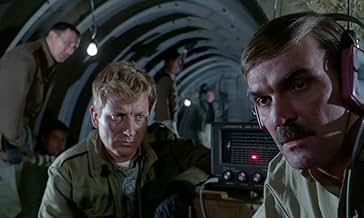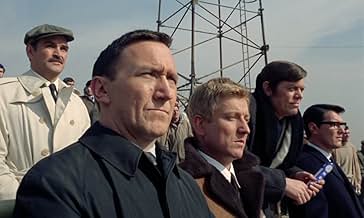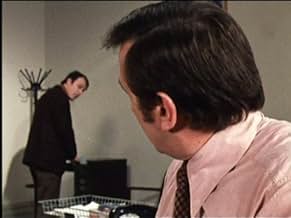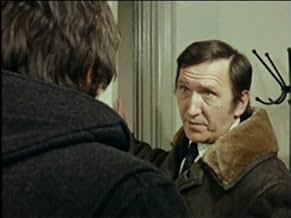George Sewell(1924-2007)
- Actor
- Additional Crew
British leading actor whose tough, pockmarked features belied a soft voice and cultivated manner. Sewell was born in East London, the son of a printer. His father was a boxer known as "The Cobblestone Kid". After brief service in the RAF during the closing stages of World War II, he held down a wide variety of short-lived jobs, including as carpenter, photographer, drummer and assistant roadie for a rumba band, steward on Cunard liners Queen Mary and Queen Elizabeth, and, for six years, as motor coach courier for a holiday travel agency.
Not until a chance conversation in 1959 with actor Dudley Sutton in a pub did Sewell seriously contemplate an acting career. A successful audition with Joan Littlewood's Theatre Workshop, led to him being cast in several cockney comedies and he ended up playing Field Marshal Haig in "Oh, What a Lovely War" in 1963. Motion pictures saw him in gritty social dramas like This Sporting Life (1963) and tough crime films like Underworld Informers (1963) and Get Carter (1971), often alternating villainy with law enforcement. He also had a small role in the science fiction thriller Journey to the Far Side of the Sun (1969). This was something of a precursor to the cult series UFO (1970), in which he played the cool-headed second-in-command, Colonel Alec Freeman.
More typically, his television characters tended to be hard-nosed, cynical cops, like his DI Brogan in Z Cars (1962) or DCI Alan Craven in Special Branch (1969). A former Littlewood alumnus, the writer Robin Chapman, picked Sewell for another plum role as a London gangster in Spindoe (1968). He was also on hand as Smiley's reliable, 'sharp-eyed' ex-Special Branch minder Mendel in the original miniseries Tinker Tailor Soldier Spy (1979).
After 2000, Sewell scaled down his television appearances and spent more time at his holiday home in the south of France. He occasionally came out of semi-retirement, most notably for a well-received production of a play by Tudor Gates, "Who Killed Agatha Christie?", in which he starred as a playwright intent on exacting revenge against a waspish critic. Sewell died in April 2007 at the age of 82, survived by a daughter and a stepson.
Not until a chance conversation in 1959 with actor Dudley Sutton in a pub did Sewell seriously contemplate an acting career. A successful audition with Joan Littlewood's Theatre Workshop, led to him being cast in several cockney comedies and he ended up playing Field Marshal Haig in "Oh, What a Lovely War" in 1963. Motion pictures saw him in gritty social dramas like This Sporting Life (1963) and tough crime films like Underworld Informers (1963) and Get Carter (1971), often alternating villainy with law enforcement. He also had a small role in the science fiction thriller Journey to the Far Side of the Sun (1969). This was something of a precursor to the cult series UFO (1970), in which he played the cool-headed second-in-command, Colonel Alec Freeman.
More typically, his television characters tended to be hard-nosed, cynical cops, like his DI Brogan in Z Cars (1962) or DCI Alan Craven in Special Branch (1969). A former Littlewood alumnus, the writer Robin Chapman, picked Sewell for another plum role as a London gangster in Spindoe (1968). He was also on hand as Smiley's reliable, 'sharp-eyed' ex-Special Branch minder Mendel in the original miniseries Tinker Tailor Soldier Spy (1979).
After 2000, Sewell scaled down his television appearances and spent more time at his holiday home in the south of France. He occasionally came out of semi-retirement, most notably for a well-received production of a play by Tudor Gates, "Who Killed Agatha Christie?", in which he starred as a playwright intent on exacting revenge against a waspish critic. Sewell died in April 2007 at the age of 82, survived by a daughter and a stepson.





































